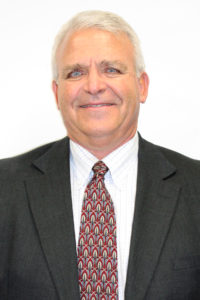Statewide AgriLife Extension weed specialist retires after 27 years
Writer: Kay Ledbetter, 806-677-5608, [email protected]
Contact: Dr. Paul Baumann, [email protected]
COLLEGE STATION – Weed problems in crops have been the focus of Dr. Paul Baumann for more than 27 years. But as of Aug. 31, he’ll be turning his interests to retirement.

Baumann, the Texas A&M AgriLife Extension Service state weed specialist in College Station, joined AgriLife Extension in 1989 and has devoted his career to addressing and solving weed management and environmental issues facing the agency’s stakeholders.
Baumann worked eight years in the private sector before coming to Texas A&M, and also spent a couple of years at Texas Tech University before rejoining Texas A&M in 1992, where he became a full professor by 1999. At that time he also became the state weed specialist for AgriLife Extension.
Dr. David Baltensperger, head of the department of soil and crop sciences, where Baumann is also a professor, said many weed management issues in corn, sorghum, cotton, wheat, peanuts, soybeans, turfgrass and pasturelands have been solved through thousands of research demonstrations during Baumann’s career.
Data generated from these studies have provided the foundation for more than 1,300 educational programs, over 30 publications, graduate student training and consistent program financial support, Baltensperger said.
“Even though I have had the great fortune to work with industry on solving a number of issues relative to weed management, I honestly feel my greatest contribution is the rigorous training of my graduate students,” Baumann said. “They are all now engaged in Texas agriculture through their positions as university professors and specialists, industry scientists and sales representatives, plant breeders and private consultants.
“Quite frankly, I could not be more proud of them. I had the good fortune of being trained in grad school by the best, Dr. Morris Merkle at Texas A&M, and Drs. John Abernathy and Jack Gipson at Texas Tech. I owed it to them to continue their legacy. If we don’t train our students to serve Texas agriculture, who will?”
Baumann said the biggest challenge during his career, without question, was weed resistance to herbicides and environmental challenges to the continued use of traditional herbicides such as atrazine.
“What I am seeing in other parts of the country relative to weed resistance is frightening,” he said. “Different weeds showing resistance to several modes of action of herbicides at a rapid pace, which is a situation that we have not yet faced in Texas with a couple of exceptions.
“Weed specialists are on a constant treadmill to devise new methods for controlling these weeds, most of the time using innovative approaches with old herbicide chemistry,” Baumann said. “Recently, the agrochemical industry has started once again to devote greater emphasis on developing new chemistry and crop tolerance to existing herbicides. I just hope this keeps pace with what we are dealing with in Texas.”
He said agriculture will continue to be challenged by environmental concerns arising out of the use of new and old herbicides. Herbicides in use today have undergone years of testing for adverse effects on human health and the environment prior to their introduction to the marketplace.
“It will be the responsibility of both university and industry researchers to address new challenges with solid field and laboratory research to confirm that products are safe, and make the general public aware of the cost/benefit analysis associated with their loss.”
Specific challenges addressed by Baumann’s program include the potential loss of the herbicide atrazine; finding herbicides for consistent grassbur control and acceptable forage tolerance; and determining the value of jatropha as an oilseed biofuel.
Additionally, Baumann partnered with other AgriLife Extension specialists to address the issue of glyphosate or Roundup-resistant weeds in Texas. He wrote AgriLife Extension publications and conducted county meetings to educate clientele and recommend solutions.
He was asked to be a speaker on many occasions, including at the O.D. Butler Field Day, Blackland Income Growth Conference, Texas Plant Protection Association Conference, Stiles Farm Field Day and Upper Gulf Coast Ranch Expo.
Baumann worked with agencies and foundations such as the National Park Service, conducting weed surveys and providing recommendations for management in National Parks. Internationally, he has consulted for the Norman Borlaug Institute for International Agriculture in Guatemala and dairy farms in Mexico. He has also presented research papers on two visits to Germany and Mexico.
Most recently, he received the Texas A&M AgriLife Vice Chancellor’s Award in Excellence for AgriLife Extension specialists in recognition of the impact he has made on the field of weed science.
Baumann has been a member of the Weed Science Society of America, the Southern Weed Science Society and the American Agronomy Society, serving on several committees for each of those organizations.
While the weed scientist may be retiring to spend more time with family, he said he won’t be walking away completely.
“I will no doubt engage in some private consulting as well. I have made many, many good farmer friends along my career path and owe them a great deal of gratitude. They have helped me to keep focused on real, practical issues and what my responsibility was to them. I hope I have met their expectations.”